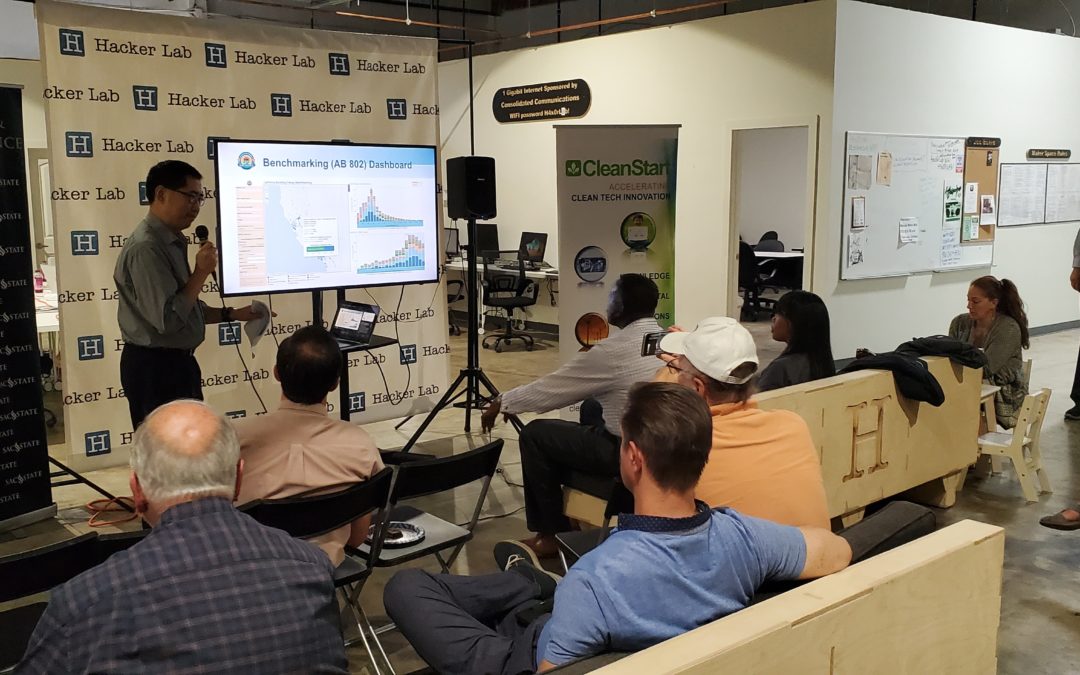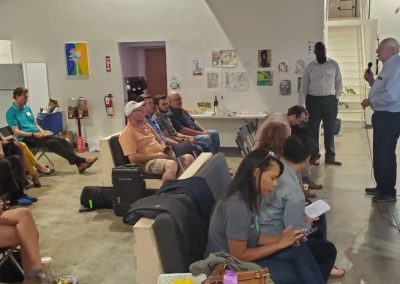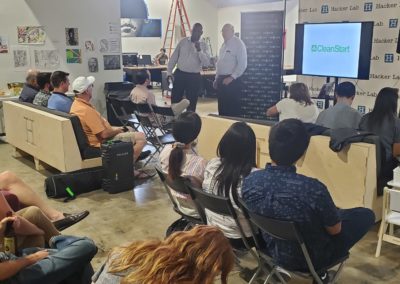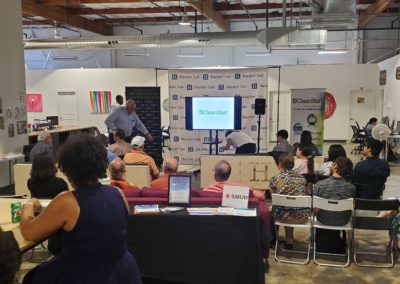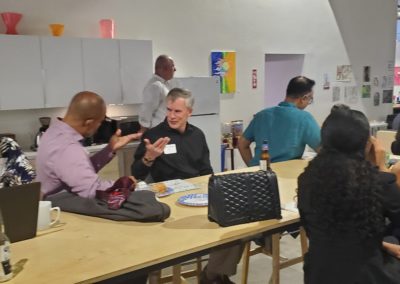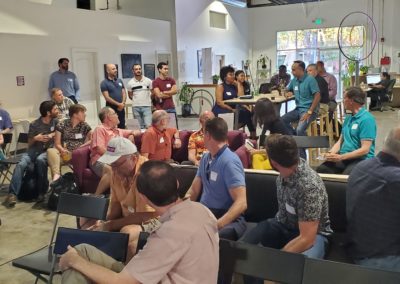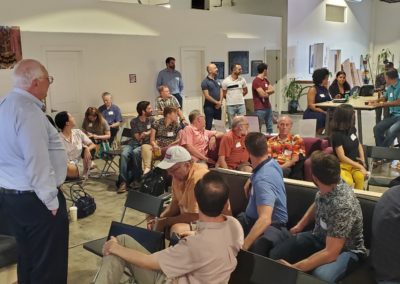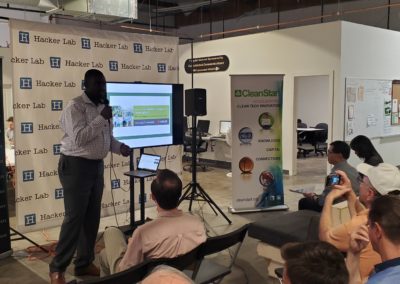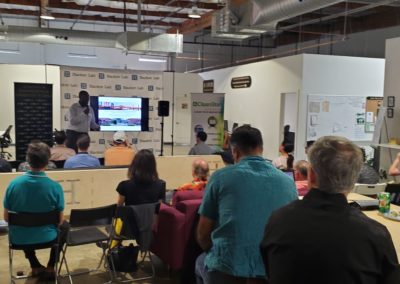A big crowd gathered at CleanStart’s new home, Hacker Lab at 2533 R Street, to hear three speakers on what might have seemed an unusual topic for us. Jose Bodipo-Memba from SMUD, Eugene Lee from the CEC, and Mariah Lichtenstern from DiverseCity Ventures spoke about the importance of spreading the benefits of cleantech beyond the usual set of customers. Startups need to be aware of this because increasingly funding sources want to know how applicants’ products will benefit disadvantaged communities and groups. Applicants who ignore these questions or give them little thought do so at their peril.
Mariah had a very specific example. She works as a reviewer with CalSEED, the CEC-funded program to give grants to innovators to prove their concepts (Phase I grants of $150,000) and then for the best of those go on to build and test prototypes (Phase II grants up to $450,000 each). These grants are very attractive because no ownership of companies is involved, the money is not a loan that needs to be repaid, and no matching funds are required. On the application, there are five questions to be answered on the broader social benefits of the proposed product. Mariah noted she was astonished at how cavalierly many applicants were in answering these questions. As a result, those applications were usually disqualified.
Jose made the point that SMUD is looking to fund clean tech projects specifically in targeted disadvantaged areas. So far they have funded $17 million of such projects. Cleantech startups seeking a demo project or wishing to find pioneer customers would find SMUD a good source of funds if they could come up with a project that addressed one of SMUD’s targets—EV chargers in disadvantaged neighborhoods, improvement of rental properties, free installations of clean tech on homes, for example. Jose provided a long list of possible opportunities.
Eugene Lee referenced a recent report he had commissioned on the barriers to the use of clean tech to disadvantaged areas. This report was mandated by SB 350. The most recent version is available here (the CleanTech in Low Income Multifamily Buildings or CLIMB Action Plan). Applicants that could devise projects that overcame one or more of these barriers would improve their funding chances with the CEC in its contracts and grants programs under its EPIC program. SB 350 also required a companion report on the barriers to disadvantaged groups getting access to clean transportation and mobility options. That report is available here. The same opportunity exists for a cleantech startup to design a demo or a project that addresses these transportation and electric vehicle barriers and submit it for funding to the Air Resources Board from cap-and-trade proceeds. Moreover, other agencies are beginning to use the “barrier” report as a guide to evaluating proposals they receive. So make it a point to learn more about what doors may be opened to you as you get a better understanding of how to serve disadvantaged groups.

ABOUT THE AUTHOR
Gary Simon is the Chair of CleanStarts Board. A seasoned energy executive and entrepreneur with 45 years of experience in business, government, and non-profits.
CleanStart Sponsors
Weintraub | Tobin, EY, Stoel Rives, Greenberg Traurig LLP
BlueTech Valley, Buchalter, Moss Adams, PowerSoft.biz
College of Engineering & Computer Science at Sacramento State

